
15311826613
Click to add WeChatIron tailings re-selection is an effective way to recover iron. As the rich iron ore gradually decreases, the development of lean iron ores and iron tailings re-selection have come into people’s view. For tailings recycling and re-selection, one needs to understand iron ore According to the mineral composition, a suitable iron tailings re-selection process should be selected based on the properties of the ore. Currently, the common iron ore tailings re-selection processes mainly includemagnetic separation, Reselect, Reselect span>FlotationandJoint mineral processing methodsSeveral types.
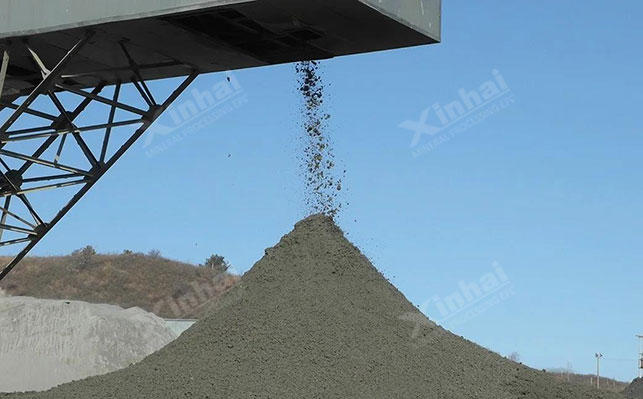
There are many iron tailings Occurs in magnetite, hematite, and limonite minerals. Gangue minerals are mostly quartz, calcite, etc. According to the difference in magnetic properties between iron minerals and gangue minerals, it is more effective to use magnetic separation to recover iron. Since iron tailings have fine particle size and few strong magnetic minerals, strong magnetic separation is often used to capture weak magnetic minerals in the re-selection process of iron tailings. The process is simple and generally adopts 2-3 stages of magnetic separation , such as using the high gradient magnetic separation method for pre-enrichment of magnetic minerals, using it in conjunction with the shaking table process or centrifuge process of the gravity separation method, obtaining Iron or ilmenite concentrate.
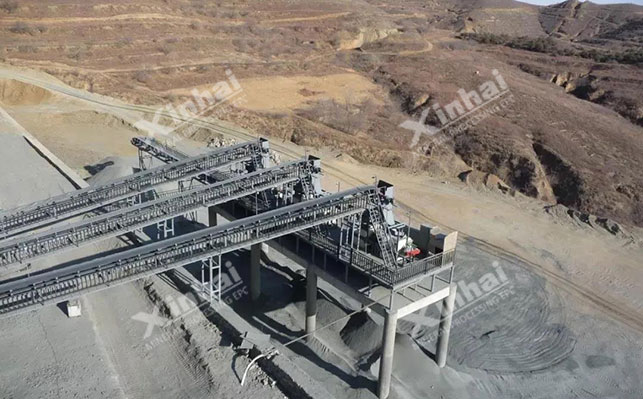
Based on the characteristics of iron tailings, if magnetic separation is performed directly, the recovery index will not be ideal. Fine grinding beforeentering magnetic separation can dissociate iron-containing mineral monomers, thus improving the magnetic separation effect. Magnetic separation is simple and convenient and does not produce additional pollution. It is now widely used for re-selection of iron tailings.
When iron ore tailings gravity separation is generally used, Spiral chutePreprocessing, The concentrate after the chute enters the regrinding system to improve the dissociation degree of the target minerals for subsequent separation; the shaker is generally used for the re-selection of strong magnetic concentrates,It will not be directly used for the separation of iron tailings. In the process of concentrate re-selection, it canobtain higher grade iron concentrate;< /span>Centrifugal concentrators are often used in conjunction with strong magnetic separators to select particle size Finer iron tailings have better tailings recovery rates and are suitable for upgrading 35-45 grade iron sub-concentrates. It is worth noting that grading operations can often play a positive role in gravity separation operations. Adding grading operations before most gravity separation operations can greatly improve iron tailings separation indicators.
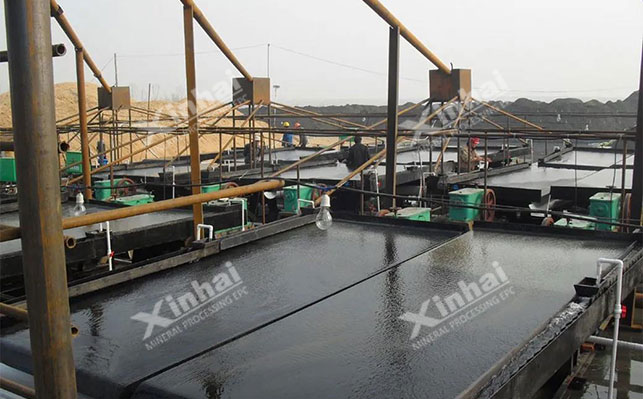
Magnetic separation and reselection of iron tailings When mined, the recovery rate is relatively low because the tailings material contains a lot of fine and micro-grained iron materials, and magnetic separation cannot effectively recover it. Therefore, the iron tailings re-selection operation needs to be completed through flotation. Flotation is based on the mineral distribution. Depending on the nature of the registration, through the coordination of mineral processing chemicals and machinery, fine or fine-grained iron tailings can be effectively separated.
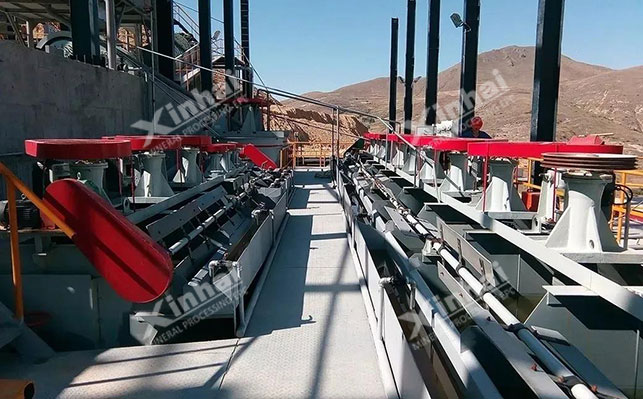
Anionic positive flotation method:Suitable for ores with simple iron oxide mineral composition, However, the mineral composition of iron tailings is complex and the mud content is large, so the flotation index using this method is poor.
Anion reverse flotation method: Mainly uses activated fatty acid collectors such as activators (calcium ions) to float quartz gangue minerals. Iron-containing minerals enter the foam together and reduce the recovery rate.
Cation reverse flotation method: When flotating iron, iron-containing silicates and quartz enter the tailings together, resulting in a higher concentrate grade, and cation reverse flotation is suitable. It is suitable for the flotation of iron-containing ores with complex composition, but the grade of the selected ore is required to be high, so the iron tailings need to be enriched before entering flotation in order to achieve better flotation indicators.
The commonly used flotation methods for iron tailings areAnion positive flotation , Anion reverse flotation, Cation reverse flotation. The main component of anionic collectors is fatty acids. Commonly used anionic collectors include RA series collectors, CY series, etc.; cationic collectors are mainly primary amine collectors such as dodecylamine and GE series cationic collectors.
Sometimes if a single magnetic separation is used, it will act on the fine-grained iron ore produced after fine grinding of the iron tailings. The material sorting power is low, which makes the fine iron minerals easily lost during the magnetic separation process, affecting the grade and recovery rate of the final concentrate. Sometimes if a single flotation is used, forward flotation has poor adaptability to some iron tailings, while reverse flotation has higher requirements for the grade of selected iron tailings, and the cost of chemicals is high. In this regard, a combined process can be considered for re-selection of iron tailings, as follows:
Gravity separation-magnetic separation-flotation combined process method:Recycling of iron tailings For iron, gravity separation is usually used as a means of pre-enrichment to improve the grade of the ore entering the magnetic separation operation. At the same time, pre-enrichment can also play a desliming role and improve the recovery rate of magnetic separation. Flotation is used as a supplementary method to capture conjoined organisms that cannot be recovered during the magnetic separation stage, thereby improving the recovery rate of the entire operation.
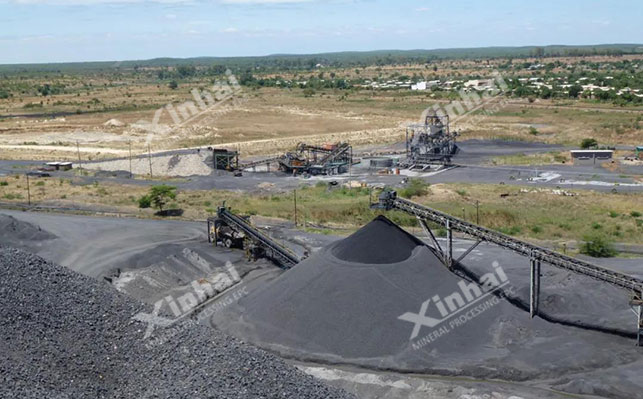
Magnetic separation-flotation combined process flow:Enrich iron minerals through magnetic separation, improve The grade of the ore entering the flotation operation can also achieve the effect of desliming and impurity removal, optimizing the flotation environment.
The above is an introduction to the common iron tailings re-selection process in the mineral processing plant. In the actual mineral processing plant, due to the different properties of the iron tailings ore and the presence of different impurities, the required re-selection process The methods are also different. Whether it is new ore separation or tailings re-selection, it needs to be analyzed through ore separation test and then designed. A suitable iron ore beneficiation process plan can achieve an ideal return on investment.